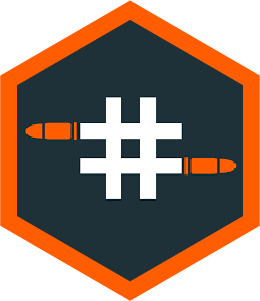crossfire is a package created to give easier access to the datasets of the project Fogo Cruzado, which is a digital collaboration platform to register gun shootings in the metropolitan areas of Rio de Janeiro and Recife.
The package facilitates data extraction from the project open-data API, developed by Volt Data Lab.
Please note that as of Nov. 2020, due to changes in Fogo Cruzado's API, user's should update crossfire to its' 0.2.0 version. The get_fogocruzado() function from the 0.1.0 version returns errors and cannot be used.
Currently, the crossfire package can be installed directly from its GitHub repository:
if (!require("devtools")) install.packages("devtools")
devtools::install_github("voltdatalab/crossfire")
library(crossfire)
crossfire has 3 functions: fogocruzado_signin, get_fogocruzado and get_cities.
-
fogocruzado_signinis used to give access to Fogo Cruzado's API. To access Fogo Cruzado's API, users should be registered and insert their e-mail and password for authentication. Thus, the function registers these information on the current R session, so that it can be used to obtain the Bearer token to extract data using the API. -
get_fogocruzadoextracts slices or the whole dataset of shootings registered by Fogo Cruzado. The function returns a data frame, in which each line corresponds to a shooting registered and its information. It can also filter the data according to some parameters, city/state -cityandstate-, initial and final date -initial_dateandfinal_date-, and the presence of security forces -security_agent. One should note that each request using thecrossfirepackage needs to be under a 210 days (roughly 7 months) time interval, from any portion of the full dataset.
# Extract data for all registered shootings
fogocruzado_all <- get_fogocruzado()
# Extract data for shootings in the cities of Rio de Janeiro and Recife in 2018
fogocruzado_rj_recife <- get_fogocruzado(city = c("Rio de Janeiro", "Recife"),
initial_date = "2018-07-01", final_date = "2018-12-31")
# Extract data from occurents reported by the police and in which security agents were present
fogocruzado_security <- get_fogocruzado(security_agent = 1, source = 2)
get_cities()returns adata.framewith information about all cities from the Rio de Janeiro and Recife metropolitan areas covered by the Fogo Cruzado initiative.
For more information on how the package works and for a complete list of functions, see the vignettes (in English and Portuguese).
Lucas Gelape, for Volt Data Lab.

